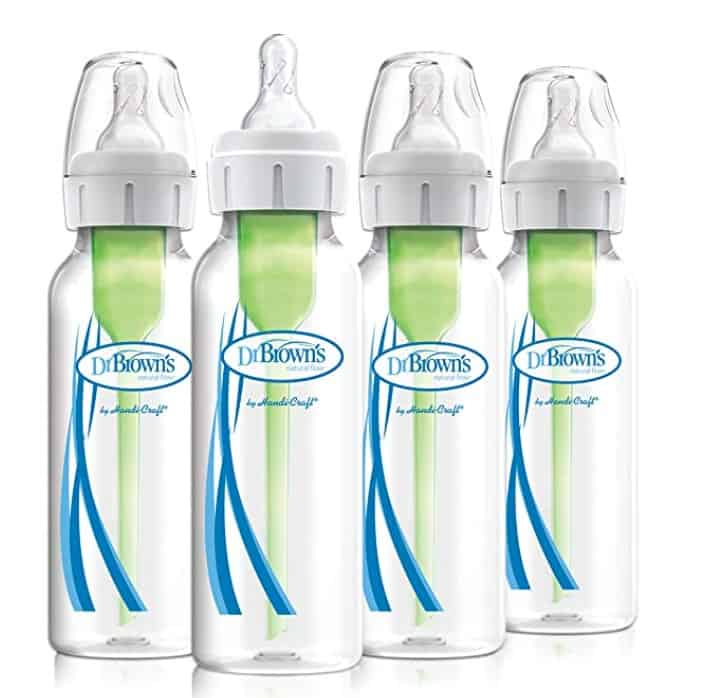When pregnant, new moms are faced with an array of decisions. One common and often most stressful decision regarding new babies is whether or not to breastfeed. While every mother is different, many women decide to at least try to breastfeed right away. However, some become quickly discouraged for various reasons, like a lack of milk production, discomfort, or pressure from others. Whether to breastfeed or bottlefeed is a personal choice; either decision is okay and right for your family. Sometimes, mothers cannot breastfeed because of medical reasons. Yet, for the ones who choose to breastfeed, this task can feel daunting or a little stressful.
So, I reached out to expert lactation consultants from Southeastern Indiana for their expertise, and they shared their wisdom and experience with me. Both lactation consultations have several years of experience, with one, Collisha Wright-Davidson, being an International Board Certified Lactation Consultant. Read more about what a lactation expert wants you to know.
Pros of Breastfeeding

©iStock.com/kieferpix
Before we dive into what a lactation expert wants you to know, let’s look at the pros of breastfeeding. Sometimes, the topic of breastfeeding versus bottle feeding can be controversial. While both the AAP and the WHO recommend breastfeeding until the ages of six months to two years old, the decision is a personal choice. However, there are some great benefits to choosing breastfeeding.
- Breastfeeding is a cheaper option.
- There is no prep for breastfeeding.
- Breastfeeding offers your baby all the fantastic nutrients they need to grow and thrive.
- It strengthens the baby’s immune system.
- Breastfeeding also aids in helping the baby’s digestive system.
- It can prevent SIDS.
- Breastfeeding is also great for preemies.
- Not to mention, breastfeeding is excellent for momma as well. It can aid in weight loss and recovery and lower the risk of postpartum depression.
Cons of Breastfeeding

©ravipat/Shutterstock.com
Like anything, breastfeeding also comes with a list of cons.
- Breastfeeding can be uncomfortable, especially at first.
- Moms will need to watch their intake of foods and drinks.
- Newborns need to eat often, which can be demanding and tiresome for a new mom getting little rest.
- It’s not possible to see how much the baby is eating.
Now that we have discussed the pros and cons of breastfeeding let’s examine what a lactation consultant wishes all new mothers knew.
Learn All You Can About Breastfeeding While You Are Pregnant

When it comes to what a lactation expert wants you to know, one of the most essential things is that education is important. Lactation expert Collisha says that while you are pregnant it is the best time to learn everything you can about breastfeeding.
Many online resources are available, including the Office for Women’s Health. Additionally, hospitals typically offer classes for new moms and have a lactation consultant to contact with any questions.
Additionally, if possible, talk to your mother or grandmother about their experience with breastfeeding. While everyone’s journey is different, this may offer insight into any difficulties they may have had and help prepare you mentally for your journey.
Right After Birth, Place the Baby on Your Breast

©Natalia Deriabina/Shutterstock.com
After birth, the mother’s body begins to produce colostrum. This yellowish milk contains many nutrients and antibodies that benefit the baby.
Many lactation consultants suggest the best thing to do right after birth is to place the baby on the breast. The WHO and UNICEF agree that the baby should be introduced to breastfeeding within an hour of birth because it has many benefits. These benefits include:
- Bonding between mom and baby.
- It takes advantage of the baby’s wakefulness.
- Regulates the baby’s temperature, heart rate, and breathing.
- It can stabilize the baby’s blood sugar.
So, if your baby is born without needing urgent medical attention, you can try placing them on your breast right after birth. Collisha Wright-Davidson shared this interesting fact, stating that “babies can actually ‘crawl’ to the breast right after birth when placed on momma’s belly.”
If Possible, Stay Away From Offering the Bottle

Sometimes, moms have no choice but to offer the bottle. This can be necessary if they have to return to work after a short period or are having difficulties getting enough rest in those early days. However, our lactation consultant Collisha suggested that moms avoid offering the bottle while breastfeeding.
The reason for this is because doing so can cause nipple confusion. There are times when latch difficulties arise. If this happens to you, do not hesitate to contact a lactation consultant for advice and encouragement.
All Your Baby Needs Right After Birth is Your Colostrum

Sometimes, new moms become stressed if their milk doesn’t come in right away. However, the female body produces colostrum immediately, and it’s all the baby needs right after birth. Although colostrum doesn’t seem like much, it is packed with nutrients and antibodies that promote your baby’s immune system.
Additionally, when a baby is born, its belly is tiny—think the size of a cherry. This means that a baby’s belly can only hold a small amount of milk, around a teaspoon or less. This is one reason why babies need to eat frequently. So, do not stress if it doesn’t seem like your baby is eating enough. They do not need a lot, and your colostrum is enough.
Check Your Baby’s Output For Clues

©Yavdat/Shutterstock.com
For moms stressed about whether or not their baby is eating enough check their output for clues. Be mindful and note how many times a day they urinate. If your baby is not getting enough milk, they will stop urinating. This can be a clue that it’s time to reach out to a consultant or a doctor for advice on the next steps.
Breastfeeding is a Process

©Alena Ozerova/Shutterstock.com
For some, breastfeeding comes easily; it feels as natural as breathing. However, for others, it’s more complex. It’s important to remember that breastfeeding your new baby is a process.
There will be bumps in the road and other days when everything goes smoothly. Keep walking the journey even if it doesn’t happen as fast or as you think it should.
Remember, Every Baby and Mom is Different

©iStock.com/NadiaCruzova
Any mother with more than one child will tell you that every baby is different. It’s also important to remember that every mom is different as well. Your journey is distinct from your friend’s or your sister’s.
This means you will be doing yourself and your baby a disservice if you compare your breastfeeding journey to anyone else’s. Instead, take it one step and one day at a time. Reach out for support from an experienced lactation consultant, a friend, or a family member. Someone who can remind you why you are on this journey, to begin with.
Enjoy Every Moment

©Lopolo/Shutterstock.com
The moments with our babies go by way too fast. It’s easy to get sucked into a mindset that makes us miss the important moments. Such as bonding with your newborn, watching them grow, smile, and laugh.
While it’s impossible to enjoy every little moment, taking care of yourself can help get rid of a negative mind and lead to refreshing. It’s important to find time for yourself and get plenty of rest because it can allow you to enjoy your newborn while they are still so small.
Don’t Be too Hard on Yourself

©haveseen/Shutterstock.com
If your breastfeeding journey isn’t going the way you had dreamed, do not be hard on yourself. As stated before, every mom and baby are different. Breastfeeding may take more effort for you but do not beat yourself down.
A positive attitude will help you more on your journey than a negative one. This is why taking it one feeding at a time is important.
When Your Milk Comes in Will Vary

On average, a woman’s breast milk takes three to five days to come in. Breastfeeding moms will begin to notice their breasts becoming fuller. Additionally, their body will produce more milk each time the baby feeds. This means a woman’s milk supply will be well established on average after around a month.
However, “on average” doesn’t mean this is every woman’s story. It takes multiple times breastfeeding for milk to come in, and when it does will vary from woman to woman. If your milk isn’t coming in right away, stay encouraged. Continue working with a lactation consultant, monitor your baby’s output, and breastfeed exclusively if their output is okay. Before you know it, your milk will be in!
In Conclusion

Being able to breastfeed is a unique and beautiful part of being a woman and a new mom. However, this doesn’t mean it is easy. When it comes to breastfeeding these important tips are what a lactation expert wants you to know. For some women, their journey of breastfeeding their new baby is lined with curves and bumps in the road, while for others, it is smooth sailing. However, both experiences are normal because every woman and baby are different.
These tips from our local lactation consultants can help you become confident and prepared for your breastfeeding journey.
The image featured at the top of this post is ©Iryna Inshyna/Shutterstock.com.
